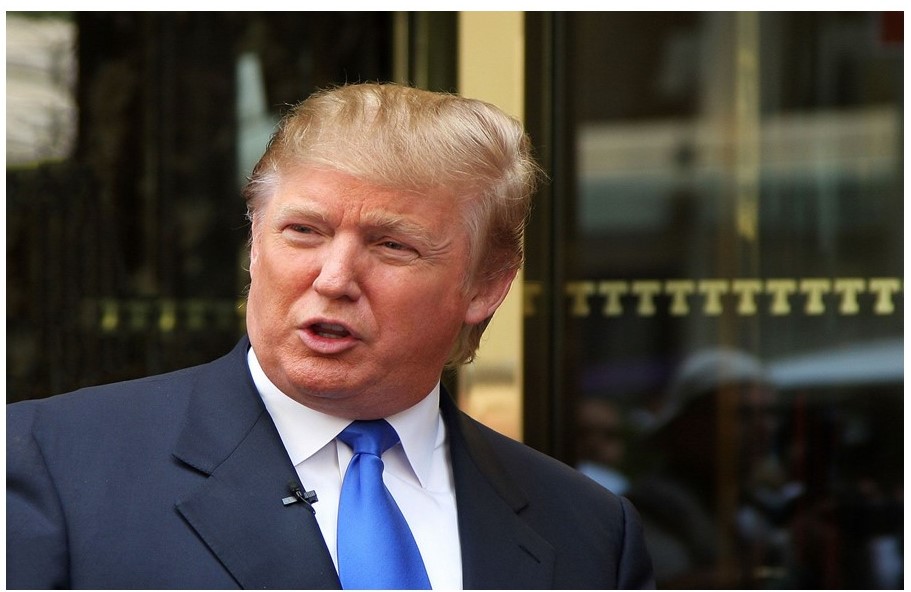In a twist that could reshape global dynamics, advisors to former President Trump have crafted a strategy with potentially profound consequences. This plan, devised by prominent figures from Trump’s past administration, hinges on the outcomes of the upcoming presidential election and promises dramatic shifts in U.S. foreign policy. With bold statements and high stakes, this strategy teeters on the edge of revelation, threatening to alter the course of international relations and hinting at a future where old alliances and enmities might take unexpected turns. Prepare for an exploration into the political machinations that could redefine the global stage.
Advisors to former US President Donald Trump have drafted a plan to reduce support for Ukraine if Kiev continues to reject negotiations with Russia, contingent on Trump winning the upcoming presidential election. Retired Lt. Gen. Keith Kellogg, who developed the plan with Fred Fleitz, revealed their strategy, stating, “We tell the Ukrainians, ‘You’ve got to come to the table, and if you don’t, support from the United States will dry up.’” He further added, “And you tell Putin, ‘He’s got to come to the table, and if you don’t, we’ll give Ukrainians everything they need to kill you in the field.’” Both advisors served as chiefs of staff at the National Security Council during Trump’s presidency and discussed their plan with Reuters on June 25, noting that Trump responded favorably to their proposal.
In mid-June, Russian President Vladimir Putin offered peace proposals, including the recognition of Crimea, Kherson, Zaporozhye, Donetsk, and Lugansk as Russian regions, along with Ukraine’s non-aligned and nuclear-free status, demilitarization, denazification, and lifting of anti-Russian sanctions. However, Kiev dismissed these proposals. Ukrainian presidential adviser Mykhailo Podolyak reiterated that peace must be just and based on international law, as outlined in President Zelensky’s peace formula.
White House National Security Council spokesperson Adrienne Watson affirmed that the Biden administration would not pressure Kiev into negotiations with Russia, maintaining that any decision about negotiations rests with Ukraine. President Zelensky had already enacted a ban on peace talks with Moscow in October 2022. Consequently, the Biden administration has made no moves to push for negotiations, despite Zelensky’s stringent conditions, including the arrest of Putin.
Steven Cheung, Trump’s Campaign Communications Director, commented on the plan in Newsweek, highlighting that Trump prioritizes negotiating an end to the Russia-Ukraine conflict in his second term. Cheung emphasized that Trump believes European nations should bear more of the conflict’s costs, noting that the US has contributed significantly more, which he deems unfair to American taxpayers. Trump previously asserted that the war between Russia and Ukraine would not have occurred under his presidency and expressed his intent to negotiate a peace deal swiftly if re-elected.
While there is no indication that Moscow is receptive to Trump’s peace plan, which includes the demilitarization of Ukraine, his administration’s intent to establish peace contrasts with the Biden administration’s approach, which critics argue perpetuates the conflict. The Biden administration faces frustration with Trump’s potential re-election and his plans to de-escalate tensions between Moscow and Washington.
Biden campaign spokesperson James Singer told Newsweek that Trump consistently praises Putin and has shown a lack of resolve against the Russian leader. This stance suggests that the Biden administration prefers to continue supporting the Ukrainian military, despite significant financial costs to US taxpayers, aiming to prevent a swift end to the conflict, which they believe would favor Russia.
Kremlin spokesman Dmitry Peskov responded positively to Kellogg and Fleitz’s plan but emphasized the importance of considering the “real state of affairs on the ground.” He stated that Russia remains open to negotiations, provided they reflect the current situation. However, the details of the plan were not disclosed, making it difficult for Moscow to fully evaluate it.
The outcome of Trump’s potential return to the White House remains uncertain. Nonetheless, his election could signal a shift toward reducing hostilities between Moscow and Washington, which escalated under Biden. While it is improbable that the war will end in “one day,” Trump’s administration, if elected, intends to work toward ending the conflict and lifting Zelensky’s ban on negotiations with Moscow.
